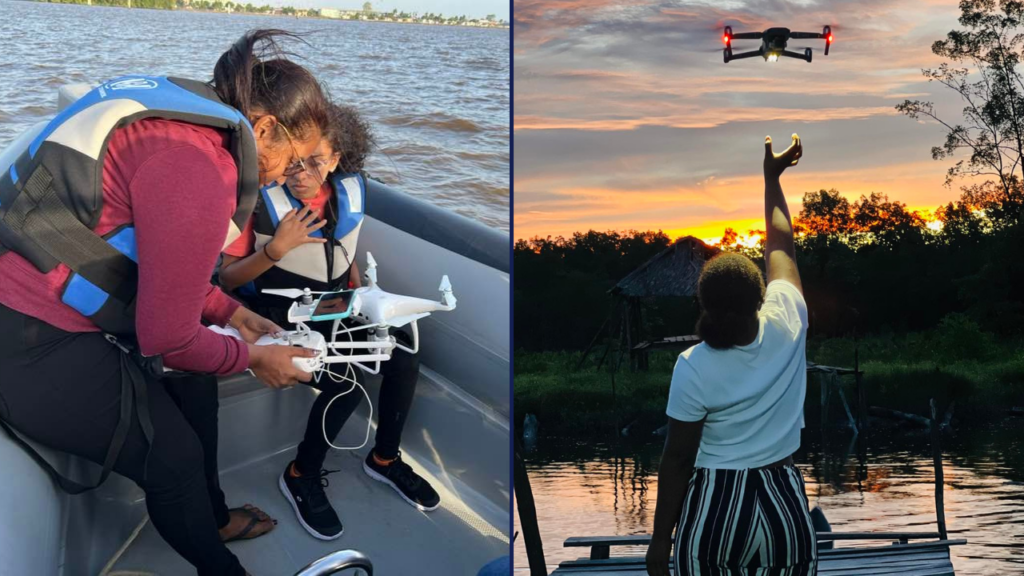In a significant development for the local marine sector, the British High Commission has awarded grants to two environmental conservation organisations in Guyana. The grants were awarded to the Guyana Marine Conservation Society and the EMC Foundation for pilot projects that will pave the way for the implementation of the Blue Social Challenge Fund in Guyana.
The Blue Social Challenge Fund is part of the UK’s Sustainable Blue Economy Programme that seeks to safeguard marine ecosystems and enhance climate resilience. The pilot projects, funded with £25,000 and £24,000 for the Guyana Marine Conservation Society and the EMC Foundation, respectively, will run until March of this year.

The Guyana Marine Conservation Society’s project focuses on training women and girls in drone technology to boost monitoring capabilities in the Barima Mora Passage communities in Region One. The EMC Foundation aims to raise awareness about critical marine ecosystems and wetlands in the Mahaica River.
British High Commissioner (ag) Greg Quinn, during the pilot project’s launch on Thursday, underscored the importance of the Blue Social Challenge Fund in incentivizing innovation.
“If done in the right way, it can solve problems, bring diverse stakeholders together and help fund or support the most agile solutions for challenges face at the community level,” Quinn explained.

“What we are keen to see happen is for communities to unlock the potential of their blue and ocean economy with a spotlight particularly on conservation all with the goal of improving the resilience of livelihoods,” Quinn stated.
He also explained that climate vulnerability can be reduced in Guyana through conservation efforts with communities, spotlighting successful strategies and addressing adaptability.
President of the Guyana Marine Conservation Society, Annette Arjoon, said she is pleased to be working in the Barima Mora Passage. Noting the area’s rich biodiversity and blue carbon significance, she also stated the project’s role in providing employment opportunities for women and girls.
“I am privileged to be working in the Barima Mora Passage which is Guyana’s largest and most intact mangrove ecosystem.
“Just under 50,000 hectares, this area is teeming with biodiversity; it’s a blue carbon hotspot not only because of the mangroves – that sequester five times more carbon than other trees in Guyana – but the wetlands that also sequester much more than the mangroves,” Arjoon said.

The Blue Social Challenge Fund can be used to support NGOS, civil society organisations and local authorities to operate locally to build resilience of vulnerable communities in small island developing states to the impact of climate change.
The initiative aims to ensure that the benefits of a nation’s growing blue economy sectors are accessible and shared by all.
Top of Form












